- Administrator
- Albums and Singles
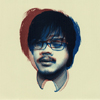 In one way, this 7" is a departure from C Spencer Yeh’s lovely, wild, textured, drone experiments as Burning Star Core and from his work with everyone from Comets on Fire and Tony Conrad to John Sinclair. Yet, these two engaging songs, with their satisfyingly oblique lyrics, also confirm his interest in the human voice and in the studio as a compositional tool.
In one way, this 7" is a departure from C Spencer Yeh’s lovely, wild, textured, drone experiments as Burning Star Core and from his work with everyone from Comets on Fire and Tony Conrad to John Sinclair. Yet, these two engaging songs, with their satisfyingly oblique lyrics, also confirm his interest in the human voice and in the studio as a compositional tool.
Those familiar with some of CS Yeh’s previous music may refuse to believe that he has created this calm, light music. Yeh is very prolific and over the past few years has used a range of tools such as treated loops, computer patches and violin across a range of formats including radio, cassette, 8-track and vinyl. His Burning Star Core releases have received enormous praise from Julian Cope (a lover of sonic wildness) with Papercuts Theatre (edited by Yeh over several years from 60 live recordings) compared favorably to The Faust Tapes and Arc. Equally, Lunar Roulette by Sych (the new project with Yeh, Wally Shoup, Chris Corsano and Bill Horist) is awash in dense free-form improvisation.
So having such a renowned free-form sonic improviser put out "In The Blink Of An Eye" and "Condo Stress" is a bit like Jackson Pollock coming around to your house to build you a very nice wooden chair—and just as satisfying. I reckon, though, that roots of a more song-based venture are clear in Yeh's work; for a portion of it has explored the "most original and dangerous instrument"—the voice. Two examples: his lengthy contribution to a WFMU radio program (a fake morning radio car drive listen) leans heavily on voice, with ads, announcements and singalong hits. Also, his piece "Slow Sex in A Fast Economy" aims for hypnotic intensity from repetitions of treated voice.
This is Yeh’s first venture into something which could be classed as "songwriting" since three titles issued in 2002 and is quite an advance on the earlier songs; with a more coherent structure and a softer, brighter production. Both have accessible rhythm and melody as well as some of the undefinable magic which can transform mystical sketches into good pop music. Both are also very different and have an atmosphere similar to traces of Eno's earliest solo records. I am obsessed with these two songs. They possess quality which harks back to the last golden age of 7" vinyl singles; a lost time when A sides were played on the radio and (if any good) B sides heard often on jukeboxes and at home.
"Blink" seems layered like a sound collage and is an insistent foot-tapper vaguely suggestive of a much mellower version of spiky Gang of Fouresque funk. Yeh’s husky and falsetto vocals flipping between alluring images of fleeting happiness and warnings of regret. "Condo" is a lovely uncluttered piece which initially sounds like John Cale playing piano with one hand tied behind his back and his eyes closed. I am fascinated by the cryptic lyrics and ambiguous emotional atmosphere. The narrator appears to blur gender, lives, and scenes to such an extent that I am reminded of Julio Cortazar’s short story "The Night Face Up" which switches between a motorcycle accident in the 20th century and a victim of human sacrifice in Aztec civilization. In both cases my attempts to deduce which scenario is reality and which is a dream eventually just give way to pure enjoyment.
Samples:
Read More
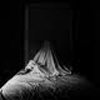 Scott Ferguson has a unique voice. Of course, like fingerprints, every voice is unique to a degree. But Scott has found his voice, and conformed it to his introspectral lyrics. Whether it is hiding submerged beneath the shadows of etheric guitar work, or rising triumphant into the light above the steady tambourine pulse and murmur of electronics, the experience is haunting. Listening to this succinct EP is like brushing up with a ghost in the haunted Midwest landscape. While the machines of industry may be dead or dying, something invisible still moves among their rusted skeletons, in the empty homes. And now I can hear them.
Scott Ferguson has a unique voice. Of course, like fingerprints, every voice is unique to a degree. But Scott has found his voice, and conformed it to his introspectral lyrics. Whether it is hiding submerged beneath the shadows of etheric guitar work, or rising triumphant into the light above the steady tambourine pulse and murmur of electronics, the experience is haunting. Listening to this succinct EP is like brushing up with a ghost in the haunted Midwest landscape. While the machines of industry may be dead or dying, something invisible still moves among their rusted skeletons, in the empty homes. And now I can hear them.
 Scott Ferguson has a unique voice. Of course, like fingerprints, every voice is unique to a degree. But Scott has found his voice, and conformed it to his introspectral lyrics. Whether it is hiding submerged beneath the shadows of etheric guitar work, or rising triumphant into the light above the steady tambourine pulse and murmur of electronics, the experience is haunting. Listening to this succinct EP is like brushing up with a ghost in the haunted Midwest landscape. While the machines of industry may be dead or dying, something invisible still moves among their rusted skeletons, in the empty homes. And now I can hear them.
Scott Ferguson has a unique voice. Of course, like fingerprints, every voice is unique to a degree. But Scott has found his voice, and conformed it to his introspectral lyrics. Whether it is hiding submerged beneath the shadows of etheric guitar work, or rising triumphant into the light above the steady tambourine pulse and murmur of electronics, the experience is haunting. Listening to this succinct EP is like brushing up with a ghost in the haunted Midwest landscape. While the machines of industry may be dead or dying, something invisible still moves among their rusted skeletons, in the empty homes. And now I can hear them.
- Matthew Spencer
- Albums and Singles
Hunter has a deep, throaty voice that fills the air. On "Paint a Babe," she drawls out the lyrics while a chorus moans -almost yawns- in response. Wacky title aside, the lyrics are garden variety summer imagery, recounting bike rides and lazy afternoons at the park. The delivery is what sets these songs apart. The fact that Hunter is a real, honest-to-god Texan gives credibility to her twang, but not all the songs rely only on her laid-back charm. "A Goblin, A Goblin" uses vivid personification and Hunter's skillful violin playing to sketch a tender picture of humanity's misfortune.
The remainder of the EP is rather spare, relying on Hunter's lyrics and her steady but unremarkable finger-picking. It's strange to ask more polish from a folk singer, but the added arrangements heighten the impact of the first two songs Hunter's lyrics are more vivid and well developed on the demos, but her voice is hidden by the lower recording quality. These songs might be of interest to fans seeking rawer versions than what's on There is No Home, but without that context, I would rather hear the album tracks.
Read More
- Administrator
- Albums and Singles
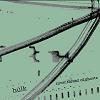 With the name Hulk and a sleeve color of an angry Bruce Banner I was expecting this album to be muscular and dominating but instead it is subdued and peaceful. The title of the album is apt, as there is a serene, supernatural feeling permeating the recordings. It is sad yet deeply comforting music.
With the name Hulk and a sleeve color of an angry Bruce Banner I was expecting this album to be muscular and dominating but instead it is subdued and peaceful. The title of the album is apt, as there is a serene, supernatural feeling permeating the recordings. It is sad yet deeply comforting music.
Osaka Recordings
Silver Thread of Ghosts rarely makes much of a fuss. It is music that sits easily into the background becoming a presence that radiates gently from across the room instead of music that is constantly distracting. Sometimes the music reaches out like a spirit to touch the listener, when it does it is almost shocking. “The Moon Versus the Sea” is one such spirit, the rich sound of the cello and the sudden stop/start structure to the piece is like a slap in the face after the first three pieces which are beautiful but fade into the background. They’re by no means bad; “Star Bed” uses recordings of many everyday rhythmic sounds like windshield wipers and waves lapping on the shore, sounds that are normally ignored and only when attention is drawn to them does their charm become apparent. Hulk do this admirably.
The album is consistent in quality and theme. Only once did I find their music cloying and that is on the mercifully brief piece “8.52am Goodbye.” Apart from this one blemish, the album is wonderful. As well as having a good ear for environmental sounds, they also have a good ear for songwriting. The melodies and rhythms found on Silver Thread of Ghosts are a delight to listen to. They’re not a radical rewriting of music as we know it but they delicate and pretty which suits the mood perfectly. Pieces like “We Ran” and “Mytikas” form the backbone of the second half of the album, showing Hulk at their finest. As the all too brief album comes to a close I can’t wait for it to finish so I can play it again.
Silver Thread of Ghosts sounds like the antithesis of the group’s name: it is soft and sensual. The music is exquisite; the songs are the perfect length, rarely breaking the five minute mark. This gives the pieces enough time to breath but stops them becoming overworked.
samples:
Read More
- Administrator
- Albums and Singles
 The primitive sounding blues being played on White Man at the Door is similar to Tom Waits or Nick Cave’s early excursions with The Bad Seeds. The Lost Domain never match those artists for power and originality but like those artists they do give modern blues playing a swift kick. It is the dark mythological blues that only came into existence when white people came onto the scene (something that is alluded to in the title of the album), something that has been done to death but can still provide the odd surprise. By no means is this a masterpiece but this album at least had some life as the band puts their own spin on the blues.
The primitive sounding blues being played on White Man at the Door is similar to Tom Waits or Nick Cave’s early excursions with The Bad Seeds. The Lost Domain never match those artists for power and originality but like those artists they do give modern blues playing a swift kick. It is the dark mythological blues that only came into existence when white people came onto the scene (something that is alluded to in the title of the album), something that has been done to death but can still provide the odd surprise. By no means is this a masterpiece but this album at least had some life as the band puts their own spin on the blues.
The six recordings included here were started four years ago and never finished. On some of the pieces it is impossible to tell that they are incomplete, elsewhere the shortcomings are obvious. However, the sound of the record is always flawless. All the pieces sound like they were recorded live in a large empty room, the reverb spilling with atmosphere. It’s possible to differentiate the physical distance between the players and the microphone; it is a very natural sounding record. Granted it is rough sounding but the roughness of the recording fits the songs like a dirty glove.
As nice as the recordings sound this doesn’t hide the fact that these are unfinished songs. “Boll Weevil” meanders and dithers for its duration, going nowhere. It sounds like a demo where the band might take one or two details from to make a new song rather than a stand alone piece. The same can be said of a couple of other pieces, they’re the kind of thing that would be of interest if the songs had been completed to see how they had evolved. Instead of evolution, much of the music here sounds extinct. On the other side of things, there are a couple of pieces that sound great as they are. “In My Time of Dying” is a long and repetitive piece with lots of fire and conviction in The Lost Domain’s playing to keep me listening. The simple beat and hollering strip the music and the emotion down to its bare essentials, it is a cathartic fifteen minutes.
White Man at the Door is an average album with moments of brilliance. Alas these moments don’t come often enough as the incomplete nature of the recordings show the songs as bare skeletons without enough flesh or vitality to constitute a song of their own. I’d be interested to hear some finished material by The Lost Domain to compare to this disc but as it stands it’s not something I’ll come back to too often.
samples:
Read More
- Administrator
- Albums and Singles
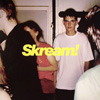 The mysterious Burial had the jump on everyone in dubstep this year, delivering the burgeoning underground scene's most anticipated artist album months in advance of anyone else. However, based on the virulent virility of Skream's unpretentious, nearly eponymous debut, I suspect I, and many others, will be more inclined to listen to this album far more regularly.
The mysterious Burial had the jump on everyone in dubstep this year, delivering the burgeoning underground scene's most anticipated artist album months in advance of anyone else. However, based on the virulent virility of Skream's unpretentious, nearly eponymous debut, I suspect I, and many others, will be more inclined to listen to this album far more regularly.
A dancefloor prodigy, Skream doesn't do the former's recurrent darkness and menacing esoterica. Instead, as famously illustrated in the DJ mixes of his that I have either downloaded or experienced firsthand, Ollie Jones brandishes melody and bass as if they were the deadliest of weapons, though more like a principled honor-bound samurai than a brutal for-hire sadist, and over these fourteen absolute bangers he leaves no doubt of his abilities. The young man painstakingly manipulates woofer-rattling low-end yet also crafts infectious hooks that furiously burrow into the ear and straight into the brain, assuring instantaneous recognition on the mandatory rewind. His breakout single, "Midnight Request Line," did just that, and its inclusion alone makes Skream! a vital purchase.
There are many staples here that, stylistically, define a good swath of the thriving genre, from the gorgeous stepper "Dutch Flowerz" to the warbly "Stagger." Beyond these imitable templates lie several delightful permutations and creative "Rutten" updates "Rottan" from Skreamizm Volume 1 with re-recorded flute melody and an extended sample of the infamous Spliff Politics speech from the film Human Traffic. Proper two-step, a style I first embraced at the height of its popularity in 2000, makes an appearance on "Summer Dreams," a jazzy slice of deep summery hedonism able to combat these dropping autumnal temperatures. If that weren't enough, "Check It," a dubwise collaboration with the almighty Warrior Queen, takes things to a ridiculously high level. Borrowing elements from Mary Wells' classic "My Guy," the dancehall diva sings of a good man over a sizzling reggae-esque beat that simply wont quit.
A lone misstep, albeit a slight one, "Tapped" assuredly would have been better off free of input from Roll Deep affiliate JME both lyrically and vocally, though this raucous tune itself can hardly be held back by some pesky grime MC. Beyond this, Skream's bright, dub-inflected and garage-informed tunes have massive potential appeal and this approachable dubstep album, if distributed and promoted suitably, should make converts quicker than a Billy Graham revival. And if you didn't catch that last reference, it's really for the best.
samples:
Read More
- Administrator
- Albums and Singles
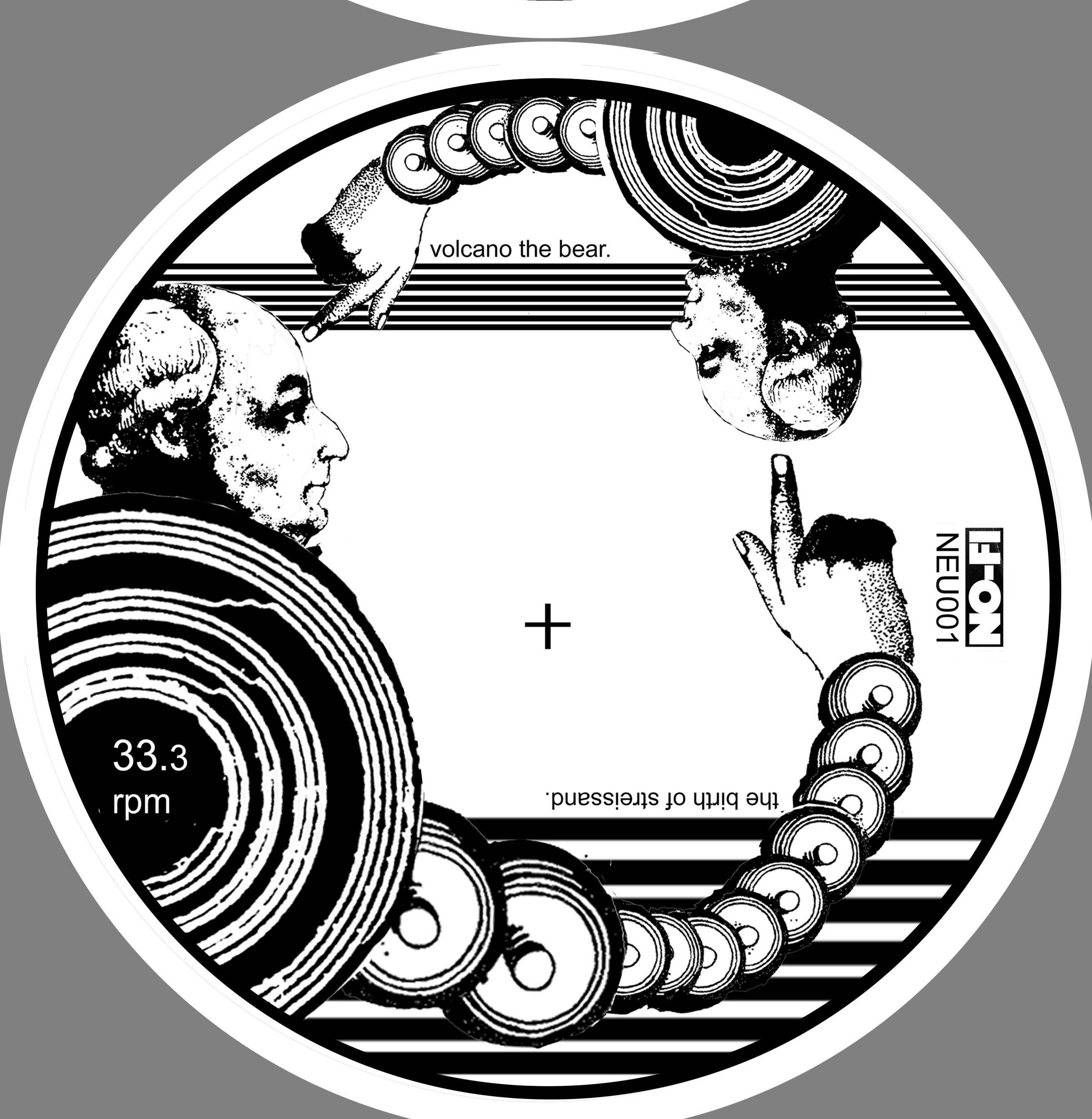 Like all great seven inch releases, this Volcano the Bear disc crams a few of this band’s multiple facets into one value for money package. These three utterly independent cuts highlight a band that never seems to settle into a style, even within the constraints of a single piece of music.
Like all great seven inch releases, this Volcano the Bear disc crams a few of this band’s multiple facets into one value for money package. These three utterly independent cuts highlight a band that never seems to settle into a style, even within the constraints of a single piece of music.
Building in ritualistic whispers and steely scrapings, the title track is a moody but fragile creation. Ear pinching whines that burrow into the head are reassured into silence by the other elements. Hidden room piano notes pierce rushing cymbal runs and tape manipulation, providing the song’s core. Volcano the Bear’s ability to shape formless collections of elements without imposing a strict structure is one of their greatest talents; their prescient live playing coming to fruition in their live recordings.
The plucked strings and the thin violin investigations of the “The Ark” run contemporaneously, fuelling the possibility of cross pollinated melody. Purposefully fumbling over these options, ostracising structure, the high single toned horn parts lead the song to is end.
The minute-long closer, “The Pincher,” takes things out on a full of beans high. The sambuca and beer studio party that that birthed the song leaves it swinging unsettlingly between the headphones like a woozy, randy drunk. There’s more than a double of shot of Tom Waits on the breath of this track. Being as catchy as it is this cut-up-and-sellotaped ramshackle bash-along could do with being a few minutes longer.
Another in a long line of brilliantly inspired group (and superb solo releases), Birth of Streissand shows their collective spirit has no sign of dimming.
samples:
Read More
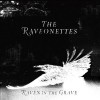 For a duo that started out as VU and JAMC copyists nearly a decade ago, the Raveonettes have progressed a long way. They came close to perfecting their bubblegum-sweet melodies and blasts of razor-sharp guitar hooks on their last album, 2009's In and Out of Control. Smartly, their new album doesn't look to one-up past accomplishments—it takes a hard left into uncharted territory.
For a duo that started out as VU and JAMC copyists nearly a decade ago, the Raveonettes have progressed a long way. They came close to perfecting their bubblegum-sweet melodies and blasts of razor-sharp guitar hooks on their last album, 2009's In and Out of Control. Smartly, their new album doesn't look to one-up past accomplishments—it takes a hard left into uncharted territory.
- Administrator
- Albums and Singles
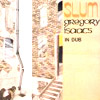 Gregory Isaacs is most known for his vocal works as a reggae singer, with recordings stretching back to the 1960s and worldwide acclaim through releases on Trojan, RAS, Front Line, and other noteworthy labels. However, back in 1978, with a little assistance from reggae royalty King Tubby and Prince Jammy, Isaacs produced this masterpiece, perhaps my own personal Holy Grail of classic dub.
Gregory Isaacs is most known for his vocal works as a reggae singer, with recordings stretching back to the 1960s and worldwide acclaim through releases on Trojan, RAS, Front Line, and other noteworthy labels. However, back in 1978, with a little assistance from reggae royalty King Tubby and Prince Jammy, Isaacs produced this masterpiece, perhaps my own personal Holy Grail of classic dub. Songs from Slum In Dub have popped up on dub compilations for years, and on the comps I own with songs from Slum always ended up being my favorites, but the actual album of this has eluded me for years. I was completely stunned to simply find it inconspicuously sitting in a record shop bin in NY on a recent trip. It's that familiar routine: there's some running mental list of records that seem to be nothing but elusive and so many bins end up being checked when away from home that the expectations are next to zero. Now I'm more than thrilled to know it is now being widely distributed again thanks to Mr. Isaacs' own African Museum label.
As aforementioned these songs always stood out above the rest on dub comps: deep and dirty sounds were soaked with soul and almost completely void of vocals. Bass and drums groove along with the rhythm guitar while a keyboard instrument (melodica or organ) takes the lead. More than likely there's somebody present whose primary function is to trigger echoed delays on the right instruments at the right times. The sound is hypnotic and its effects are euphoric. Slum is fourteen tracks of gems like this that I wish went on much longer.
There's magic is in the simplicity of playing, as it's a jam but not by a collection of soul-less music school students showing off. It's restrained, and this is a talent that so many youngsters—even those on tour with people like Mad Professor at the dials—fail to possess. It makes Slum In Dub an album to come back to over and over again as both a listening and a learning experience.
samples:
Read More
- Administrator
- Albums and Singles
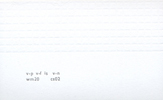 Given that each of the 51 pieces on this compilation are all roughly a minute in duration, there is a lot of hopping around here, with disparate pieces put aside one another to create some varying transitions, sometimes brilliant, sometimes confusing. Unsurprisingly, the individual contributions follow a similar pattern, with some moments that I wish were longer, and others I could do without.
Given that each of the 51 pieces on this compilation are all roughly a minute in duration, there is a lot of hopping around here, with disparate pieces put aside one another to create some varying transitions, sometimes brilliant, sometimes confusing. Unsurprisingly, the individual contributions follow a similar pattern, with some moments that I wish were longer, and others I could do without.
Many of the artists on this compilation work within field recordings, with the strengths and weaknesses of that approach becoming quite obvious throughout.The two pieces by Sawako are examples of field recording at its best:a strong balance of sounds that are familiar and alien are there, with an extremely subtle melodic accompaniment.Label owner Ben Owen's "Lisbon Station" is also a favorite, capturing a mechanical, rhythmic repetition of sound that has an unrecognizable color to it.
Good field recording artists, to me, are ones that use environmental sounds in such a way that is recognizable, but also draws attention to elements that I normally wouldn’t hear in my every day life.The urban emptiness and chirping birds of Manfred Werder/Incidental Music’s "2008(1)" are, to me, too sparse and conventional to be engaging.The same with Stefan Thut's pieces, two of which sound simply like tape recordings of an empty room.
Other contributions follow different trajectories, such as the brilliantly hyperkinetic squelches of sound that comprise both of Giuseppe Ielasi's contributions, as does the industrial clatter and chaos of Jason Kahn's work.Toy.bizarre’s "kdi dctb 195 [c] – 05" also stands out as a tumbling mess of metal percussion and eerily unidentifiable scrapes and groans.
The two pieces on each side of the tape by Dominic Lash also stand out conceptually, with the first side running a cello through subtle digital processing, blurring the line between instrument and effect, while the fragmented nature of the second piece sounds like the dissection of the first, pulling individual tones out and examining them carefully.
One reason this compilation works so well is that the pieces are so short and varied, and thus cover a lot of ground without ever feeling overly random or haphazard.There wasn't a moment I was ever motivated to fast forward the tape to the next track, but in many cases, such as the textural static layers of the closing "transmission_1.1" by Robert Curgenven, I simply wished for more of a piece.Rarely is there a compilation where I’m motivated to play through the entire thing multiple times, but here is one of those exceptions.
Read More

